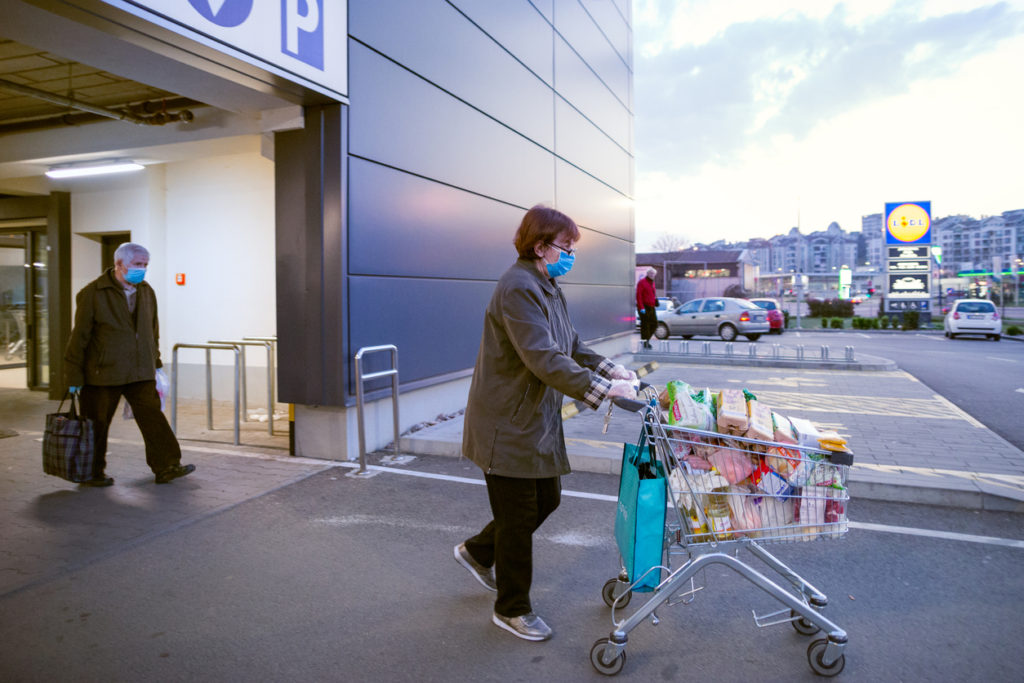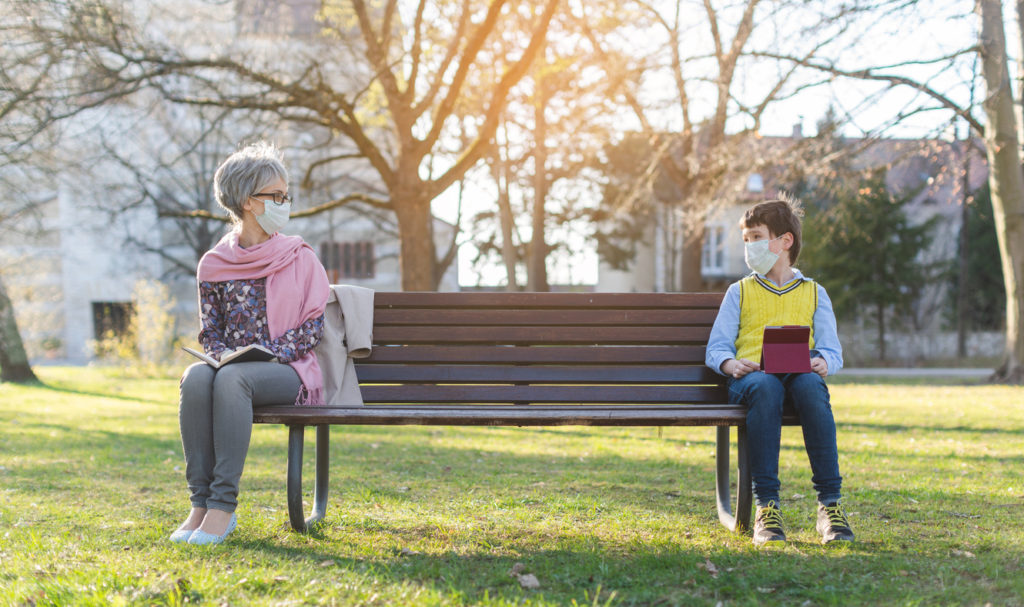By Sharon Svoboda
Since mid-March, we all have faced new challenges. For residents of senior living communities and supportive housing, these challenges brought opportunities for learning and growth as they navigated new systems to meet their needs.
With the direction becoming clear that people needed to stay physically distanced to keep safe, changes began to take place. Community rooms that recently held groups of people full of laughter and activity now had their chairs tucked away and lights turned off. Parties, bingo games, and card clubs were cancelled. Programs that educated on health and wellness topics were postponed.
To further protect themselves, residents were asked to stay in their apartments and away from neighbors, to tell family and friends not to visit, and to wear a mask any time they leave, even when going to their mailbox. Signs of social distancing could be seen everywhere, from limits on the number of people permitted in the laundry rooms and elevators to tape lines on the floor separating residents by six feet during food donations.
And possibly most challenging for a population that is already vulnerable and often isolated, these seniors have struggled through feelings of loneliness and longing for connection with others in person. They have missed hugging their children and grandchildren, holding the hand of a friend, or sharing stories with staff, all while dealing with fears of uncertainty.
But in spite of it all, local seniors have shown a perseverance to adapt to change and willingness to grow.
Adapt, learn and grow
Community residents began tapping into their creative minds to fashion masks out of t-shirts and bandanas (and in a pinch – bras!), and some found comfort in altruism by making masks for their neighbors and to contribute to the overall goal of flattening the curve.

Seniors also found they could be empowered by utilizing more of the technology they already had. They quickly learned to use cell phones and computers to participate in telehealth with doctors and therapists and found it easier than anticipated. They discovered the convenience of ordering groceries for curbside pickup and delivery through apps and online. They found the challenge rewarding as they now have new skills and resources to use beyond the pandemic.
For entertainment, they called into listening sessions for live book reading and Q&A sessions, history lectures and discovered new passions through web classes on art, languages and nutrition and gardening. New experiences came in the form of symphony virtual musical collaborations, theatrical performances, zoo tours and museum walkthroughs.
And maybe most importantly, they gained confidence in using video chat applications to connect with family and friends to share stories, laughter and music.
And the community responded
Many local organizations have also stepped up to make access to healthy food easier for older adults.
The Greater Pittsburgh Community Food Bank has continued delivering Senior Boxes to eligible seniors and allowed for adapted methods of distribution and registration to maintain distance. They also provide local pantry sites and Doorstep Delivery for those who are in urgent need. (www.pittsburghfoodbank.org)
412 Food Rescue has provided fresh produce, prepared foods and baked goods to local senior communities by the generous donations from area grocery stores and restaurants and the kindness of the volunteers who use their own time and gasoline to make the deliveries. This organization is especially appreciated as it limits the number of trips residents have to take to the supermarket. (412foodrescue.org)
Seniors have also felt the love from community pop-up programs, like farmers’ market volunteers and restaurants preparing hundreds of meals, surprising seniors in their communities with a hot meal, sometimes on a weekly basis or more! And in some cases, even local police and fire departments volunteered their valuable time to distribute the meals.
Participants in the Department of Human Services (DHS) benefit programs were positively impacted as well. In March, April and May, recipients of SNAP (food stamp) benefits received the maximum amount allowed for their household due to the CARES Act. In times of uncertainty, not having to worry about paying for food has been a relief. (www.dhs.pa.gov)
Challenges, changes and looking ahead
As we continue to adapt through these changes, seniors have been also seeing other transformations in the programs and services they use.
Transportation has been an obstacle for some seniors to get to essential places like the doctor or grocery store, as some smaller transportation options run by volunteers have been halted in the past weeks. Many area seniors rely on Access Transportation, and now they will expect to be required to wear a mask in the vehicle and may be asked screening questions.

Similarly, if an in-person trip to the doctor or dentist is upcoming, they are expecting COVID-19 screenings upon entry, involving temperature checks and screening questions. They may even be asked to wait in their vehicle until the exam room is ready to limit people in waiting rooms.

We look forward to when we can once again open our community rooms, invite each other inside with a handshake or a hug, and share a moment of connectedness. In the meantime, we are all doing our part to contribute to keeping the ones we love safe and healthy by making social sacrifices and adhering to guidelines to keep us protected from illness. We understand it’s these sacrifices that are saving lives.
In difficult times, we all have the opportunity to find strengths we did not know we had, and this is exactly what seniors are discovering about themselves. They are resilient, creative and confident that they are able to adapt and thrive in ever-changing times. And with the addition of connecting to the community in new ways, we realize we can still be close to one another, even when keeping a safe physical distance apart!
Sharon Svoboda is a Service Coordinator for SeniorCare Network and United Methodist Church Union. For more information about their supportive housing programs, please visit srcare.org or churchunion.org.

